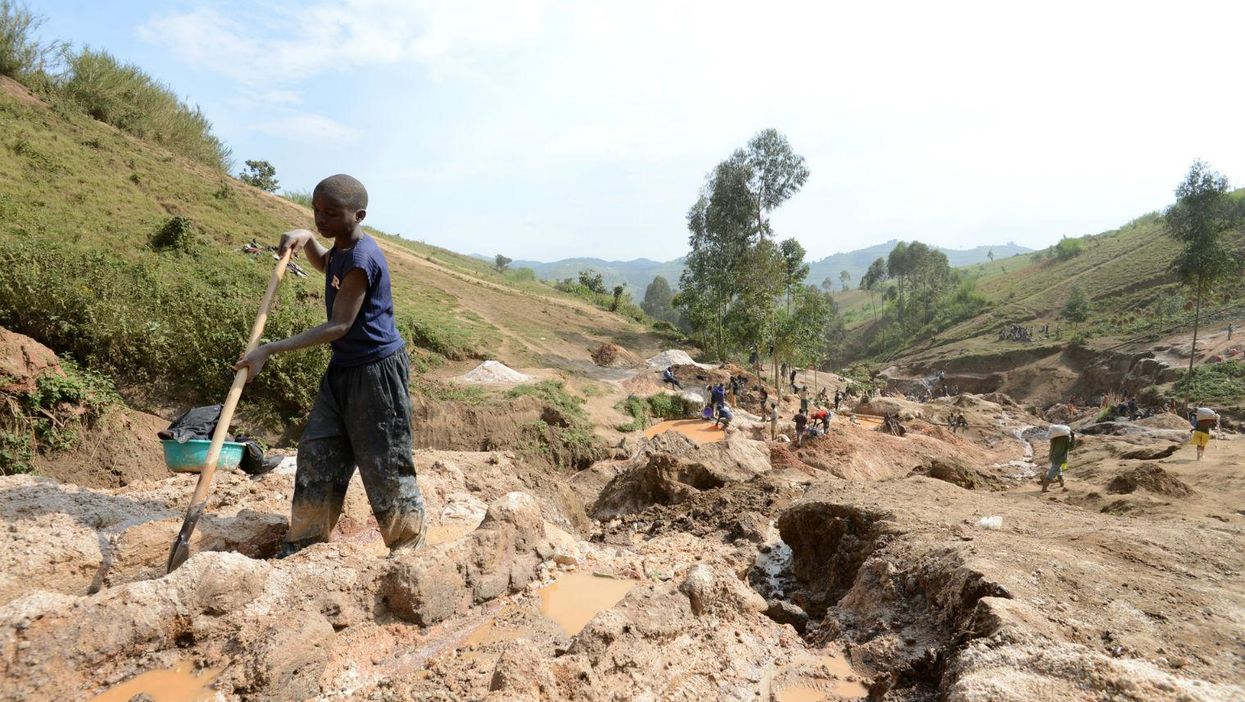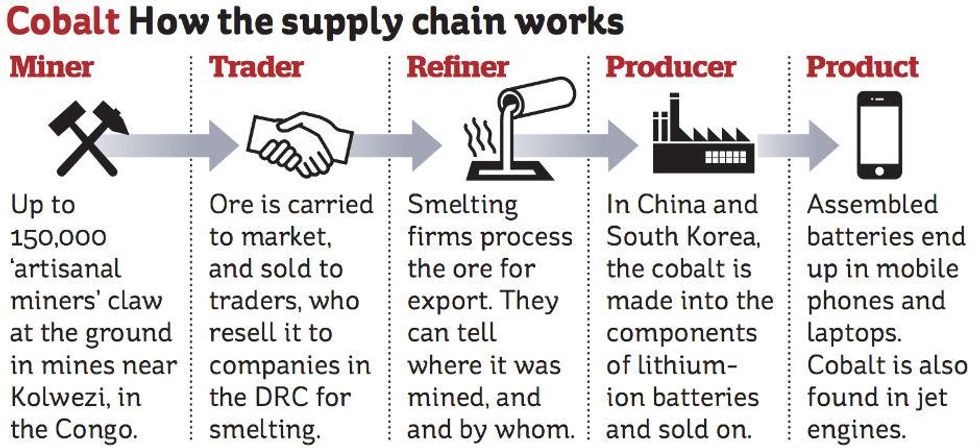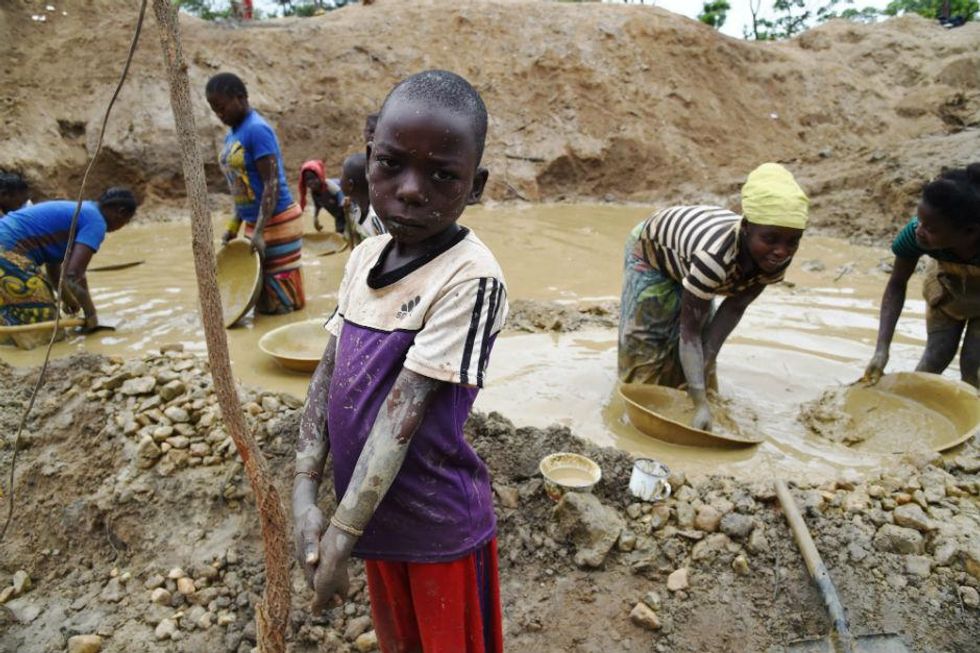Science & Tech
David Connett
Jan 19, 2016

A child separates mineral from rock and sand at a mine in DR Congo
Thousands of children, some as young as seven, are working in dangerous mines to produce a mineral which is powering mobile phones, computers and vehicle batteries around the world.
On Tuesday, 16 of the world's most famous electronic brands, including Apple, Sony and Microsoft, are accused of failing to take ultimate responsibility for the sourcing of some raw components found in the Democratic Republic of Congo (DRC).
Major companies are failing to do "basic checks" to ensure that cobalt mined by child labourers has not been used in their products, said Amnesty International and Afrewatch in a major new report.
It traces the sale of cobalt, used in lithium-ion batteries, from mines where, it is claimed, children and adults work in perilous conditions.
When contacted by Amnesty and Afrewatch, companies said they had a "zero tolerance policy" on child labour. But critics say there is little regulation of DRC mines and the global cobalt market.
Children can work up to 12 hours for as little as $1-2 a day (69p-£1.40) in unregulated cobalt mines where few, if any, safety rules apply, investigators said.
The majority of the cobalt mined in the unregulated sector of Congo is sold to a Chinese-owned smelting company which supplies battery-component making factories around the world. Between Congo and Asia, the ultimate source of the materials is often unrecognised. Under international guidance, manufacturers are expected to trace the mineral from extraction, the circumstances of extraction and its export.
Apple said it took "any concerns seriously and investigate every allegation". Sony said it was carrying out a "fact-finding" inquiry. Microsoft said it no longer sourced cobalt from a Chinese firm implicated in the DRC trade.
Top 100
The Conversation (0)















